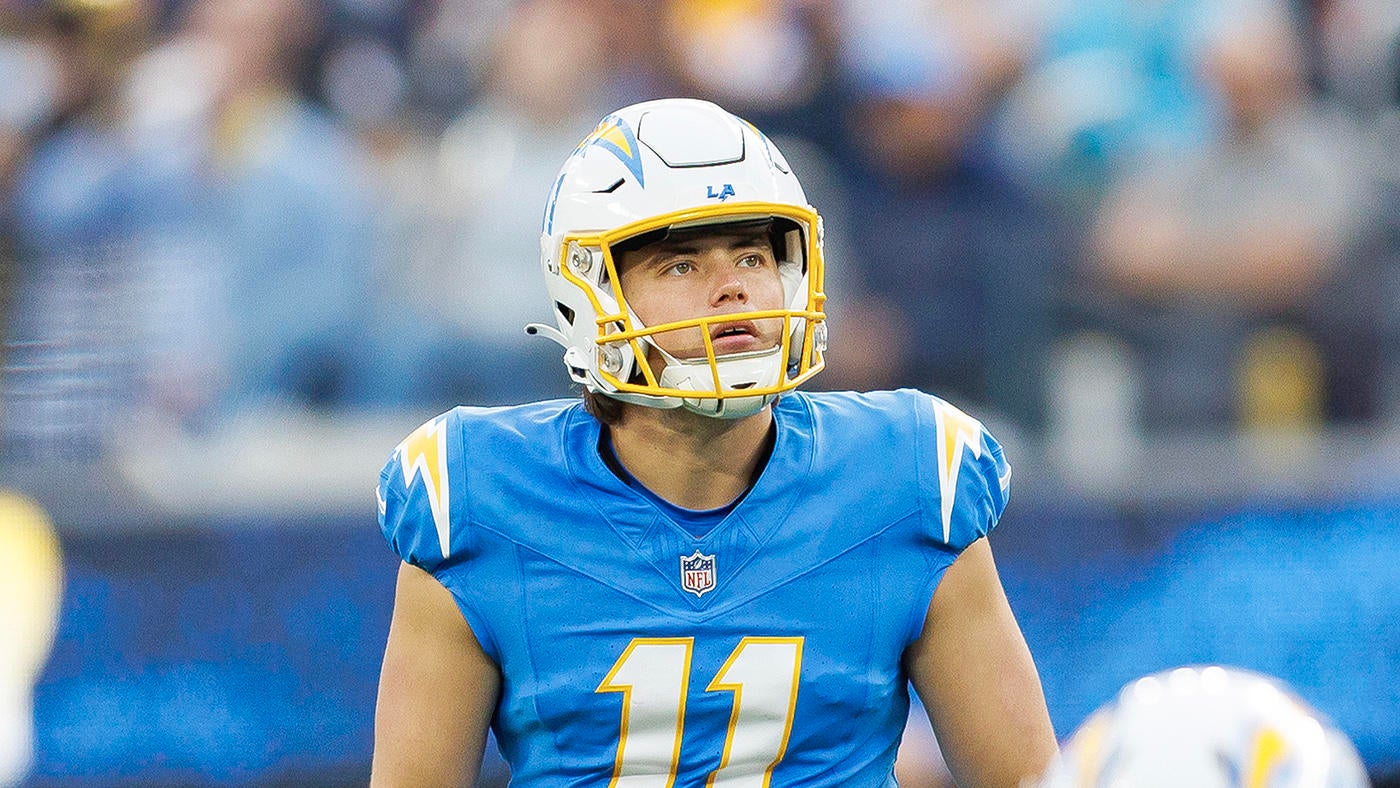
The game between the Chargers and Broncos got a little confusing toward the end of the first half on Thursday night when Los Angeles decided to take advantage of an obscure NFL rule known as the fair-catch kick.
With eight seconds left to play in the first half, the Broncos were facing a fourth-and-12 from their own 16-yard line, which was an obvious punting situation for Denver. Chargers returner Derius Davis called for a fair catch on the play, and that’s where the rarely used fair-catch kick came in.
Basically, the rule goes like this: If a team fair catches a punt, they’re allowed to attempt a free kick on the next play. The kick isn’t a typical field goal, either. The defense has to line up 10 yards off the ball — similar to a kickoff — and the defense is NOT allowed to try and block the kick. The “free kick” is more like a kickoff, except the kicker has to attempt the field goal off the ground and there’s also a holder (The kicker also has the option to dropkick the ball, but that almost never happens).
Here’s how the NFL describes the rule:
“After a fair catch, the receiving team has the option to put the ball in play by a snap or a fair-catch kick (field goal attempt), with fair-catch kick lines established ten yards apart. All general rules apply as for a field goal attempt from scrimmage. The clock starts when the ball is kicked. (No tee permitted.)”
Now that you know how the rule works, let’s get back to the game. Davis actually called for a fair catch from his own 38-yard line, but the Broncos were called for fair-catch interference on the play, which is a 15-yard penalty. That moved the ball to Denver’s 47-yard line, and under the fair-catch kick rule, that meant the Cameron Dicker got to attempt a field goal from that exact spot.
Dicker nailed the kick, which made him the first player since Ray Wersching in 1976 to make a fair-catch kick.
Dicker’s field goal cut Denver’s lead to 21-13 at the half. Wersching was also playing for the Chargers when he hit his free kick, which means the only two fair-catch kicks the NFL has seen since 1970 have been converted by the Chargers, who went on to win 34-27.
Although the team calling for the fair catch can take advantage of the free kick rule at any point during a game, it really only makes sense at the end of a half. If the Chargers had called for this fair catch with 20 seconds left in the half, they likely would have run a play or two to try and get the ball closer for a field goal attempt. Remember, the free kick is only an option on the very next play after a fair catch.
The fair-catch kick rule is very rarely used in the NFL. The last player to attempt a fair catch field goal before Thursday night was Joey Slye, who missed a 60-yard attempt in 2019. Before Slye came along, Phil Dawson also attempted one for the 49ers in 2013, which is mostly notable because his coach at the time was Jim Harbaugh, which means he’s not been on the sideline as the head coach for two fair-catch kicks.
Dicker’s field goal attempt was actually only the sixth fair-catch kick attempted in the NFL over the past 30 years, but everyone had missed their kick before Dicker came along.
Dicker’s kick was also just the fourth fair-catch kick out of 20 to be converted in the Super Bowl era.

